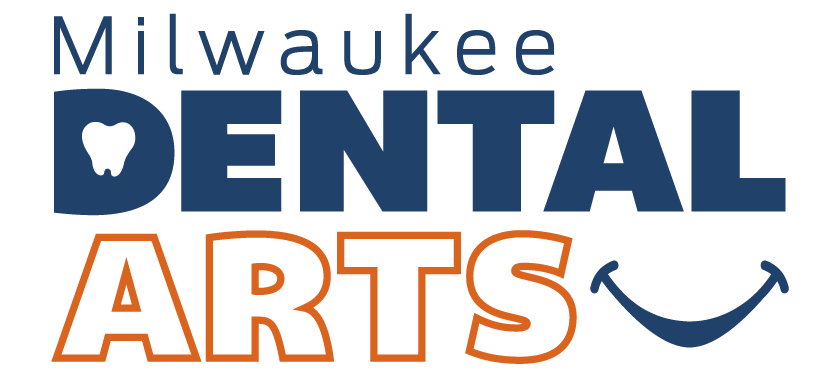
A common question that new patients often ask us is if we accept their dental insurance. The answer to this question is almost always, “yes.” There are many companies that provide insurance benefits for their employees and there are several ways to purchase private dental insurance. Below are a few common carriers with which we are in-network.
- Delta
- Anthem Blue Cross/Blue Shield
- Metlife
- Cigna
- Humana
- Aetna
- Guardian
- United Healthcare
And we also accept many other insurances! Don’t see yours on the list above? Contact us. Our commitment to our patients goes beyond the dentistry itself.
Milwaukee Dental Arts also has many patients that pay for their dental treatment without the influence of dental insurance companies. Dental exams and cleanings may be less expensive than you think. At our office we also have several financial options available to our patients. We offer our own in-office membership and also accept Care Credit.
We are an excellent resource for questions regarding dental insurance and benefits. We take the time to make our patients’ concerns a priority. Give us a call if you have any questions.
We have our own in-house patient membership club that provides all the rewards of dental insurance.
For a small monthly membership fee, you’ll receive complimentary:
• Bi-annual dental cleanings
• Doctor exams
• All scheduled x-rays
You’ll also receive a special Member’s Only Discount on any needed treatment, as well as cosmetic services!
Because our patient membership club is not insurance, there are:
• No deductibles
• No yearly maximum benefits
• No exclusions for cosmetic or elective care
Give us a call at (414) 645-0217 or click here for more info.
Yes. We are very experienced with tooth removals and are capable of removing wisdom teeth. If the removal appears to be more complicated due to the position of the tooth in the jaw or if you are interested in deep sedation or general anesthesia during the procedure, we can refer you to a specialist of dentistry called an oral surgeon. They are able to handle more complicated tooth removals, including impacted wisdom teeth. They are also able to provide general anesthesia, if needed, for patient comfort.
When gums bleed during brushing or flossing it may be a sign of gingivitis or early periodontal (gum and bone) disease. The soft white material that builds up on teeth daily is called “plaque”. When this material is not thoroughly removed from the teeth and gum surfaces, it becomes very irritating to the gums making them bleed easily during normal brushing and flossing procedures. If plaque remains for an extended period of time, it will turn into a hard mineralized substance strongly attached to the teeth called calculus or “tartar”. When this occurs, the patient is at a greater risk of developing infection of the gum and bone tissue supporting the teeth. This infection is called Periodontal Disease and is the #1 reason why people lose their teeth prematurely.
Healthy gums begin with the patient’s proper care and maintenance at home on a daily basis. Everyone should brush their teeth properly at least twice each day with a soft-bristled manual or electric toothbrush for a total of two minutes each time. Two minutes has been proven to be the amount of time necessary to properly clean all surfaces of the teeth. Unfortunately proper brushing techniques will not remove plaque that accumulates directly in between the teeth. This is a popular area for decay to develop and for gum tissue to become inflamed. Flossing properly at least once each day will not only keep your gums much healthier, it will also help to prevent the development of decay. In addition to proper home care, regular visits to Milwaukee Dental Arts for professional cleanings (at least every six months) is important as your dental hygienist is able to reach areas people simply cannot with brushing and flossing at home. A licensed dental hygienist is able to remove the build-up of calculus or “tartar”. Calculus can only be removed properly by your dental hygienist using specially designed instruments. Brushing and flossing alone does not remove calculus.
We all have heard about “cavities”, but we often get asked how dental fillings work to repair these cavities.
We first remove the decayed part of the tooth. Decay is actually a bacterial infection of the tooth structure that typically grows bigger over time. A local anesthetic is usually applied to numb the area to be treated and then the dentist will remove the infected portion of the tooth. The missing tooth structure is then rebuilt with a dental filling material matched to the color of the tooth.
Yes. Our entire team at Milwaukee Dental Arts is fluent in Spanish. It is very important to us that you are comfortable and understand your treatment plan so we are happy to communicate in Spanish on the phone or during your visit.
Yes, we see patients of all ages.
The American Academy of Pediatric Dentistry recommends children are seen for their first dental visit by approximately 12 months of age. This is especially true for children who are at a high risk for developing decay. In general, children at high risk for developing decay have parents with a history of poor dental health.
This initial visit at 12 months of age is quick and relatively enjoyable for both the child and parent. “X-rays” are not made and usually the child does not even have to sit in the “big chair”. This visit is meant for the dentist to quickly “count the teeth” and evaluate the child’s developing dentition as well as discuss home care and diet with the parent. At times, early problems can be discovered and simple measures can be made so these problems do not become serious.
This easy initial visit allows the child to become accustomed with the sights, sounds, and smells of the dental office. When it is time for a more involved dental visit such as having a “filling” placed, they will be much more comfortable with the experience.
Sometimes a child will be better served seeing a dental specialist called a Pediatric Dentist. These dentists have undergone additional training pertaining to the treatment of children and are experts at child behavioral management in the dental setting. If we notice a child would benefit from being seen by a Pediatric Dentist, we will make the proper referral.
